Disney films heavily mined fairy tales throughout the history of the studio but it wasn’t until the late nineties that they tackled Greek mythology for a feature film - that one segment of Fantasia notwithstanding - and with some fantastic art design by Gerald Scarfe and great songs by Alan Menken and David Zippel we are treated to a fun bubbly and completely bastardized version of the Hercules story. Now when I went to see Disney’s Hercules I didn’t expect it to include such elements as our hero murdering his own family but they barely used anything from the mythology other than his name (which they even used the Roman pronunciation) and that he is the son of Zeus and a really strong guy.
“Do I look like a raging psychopath?”
The movie begins with a little backstory sung by the Greek Muses who in this movie are a gospel chorus and easily one of the best elements of the movie, they sing of how Zeus (Rip Torn) defeated the Titans and trapped them in a prison beneath the ocean.
Myth Note: The Titans were actually trapped by Zeus’s grandfather Uranus in Tartarus which is located in the depths of the Underworld and not at the bottom of the ocean as depicted in this movie.
But the folks at Disney have never been averse to major changes from the source material and as long as the story holds up I don’t normally have a problem with it.
“This is the Gospel Truth.”
This leads to the one change that radically alters the story of Hercules. In this version, he is the son of both Zeus and Hera which makes him a god and not a demi-god as is in the Greek myths. In the mythology Hercules was the son of Zeus and the mortal woman Alcmene, thus this movie eliminates one of the key players of Hercules's life and that is of Hera the goddess who harbours murderous hate of the bastard who is living evidence of her husband's infidelity. On the other hand, we have Disney's version of Hera, a loving mother who barely has more than a couple of lines of dialogue as this version of the story focuses on the relationship between Hercules and his father Zeus. If you look through the history of Disney animated movies if the hero or heroine even has a mother, and most don’t, they rarely have anything to say or do that impacts the story.
“Dear husband, are we sure he's mine?"
Pretty much every adaptation of the Hercules myth has kept the element of him being fathered by Zeus and a mortal woman, so why would Disney change that? My guess is that the studio wasn’t big on the idea of having the hero’s father being a serial rapist.
Zeus, father of the gods and colossal asshat.
The main villain of this version of Hercules is the god Hades (James Woods) and the god of the underworld does seem like a logical choice, but now if you are going to make a god the main antagonist you better place upfront some serious rules as to why said god doesn’t just outright smite the hero's ass. Is Hades afraid of retribution from Zeus? Is there some god-law that doesn’t allow direct involvement in murder? If so it apparently doesn’t cover sending minions to do the dirty deed.
Hades god of the Underworld and poor delegator.
And why does Hades need Hercules out of the way? The Fates tell him that it is only Hercules that stands in his way of defeating the pantheon of gods, yet Zeus didn’t seem to have a problem laying the smackdown on the Titans during the film's prologue so I’m not really sure why he’d need his son’s help this time out.
Because baby Hercules is a god and thus immortal he can’t be killed so Hades comes up with the brilliant plan of forcing the infant to drink a potion that will turn him mortal and then have him killed. If immortality was that easy to remove I’m betting all the gods would be much leerier about enemies spiking their drinks.
Where did Hades even get such a powerful elixir?
So evil minions Pain and Panic kidnap baby Hercules and give him the potion but the bottle gets broken before he gets the last drop and this somehow results in him retaining his godlike strength even if now just a mortal. When Pain and Panic turn into snakes to kill the little tyke they find themselves being bashed senseless by the tiny powerhouse.
Myth Note: In the legend, it was Hera who sent snakes to kill the infant.
We are informed that for some reason it is against the rules for a mortal to live on Mount Olympus so poor Hercules is forced to live on Earth with adopted parents and herein lies a major plot convenience, Hades is led to believe that his minion's Pain and Panic have killed Hercules yet all the gods on Olympus went out to search for the stolen godling but when they found him it was too late as he was now mortal and thus no longer allowed to live on Mount Olympus. So are we to assume that in the intervening eighteen years no god mentioned in passing to Hades anything about Hercules now living among the mortals? What happened to Hercules wasn’t a secret, none of the gods had any reason to believe Hades was involved with the kidnapping and mortal-turning of Hercules, so it’s hard to swallow that Zeus would never mention his son, the aspiring hero, to his brother Hades through all those years.
After causing years of consternation with his adoptive parents due to his super-strength, causing mayhem and disaster wherever he went, he finally finds out that his real father is Zeus the king of the gods. He thinks this is fantastic and welcomes the chance to go live on Mount Olympus.
“Screw those losers who raised me.”
Of course Zeus rains on his parade with the info about mortals not being allowed in the penthouse up in the sky but he is informed that if he becomes a true hero he can reclaim his godlike status and return to the home of the gods. This begs the question, “Who is deciding what a true hero is?” If it’s Zeus that means he has the power to grant godhood which in turn means he could have “cured” his babies’ mortality problem at any time. If it is not Zeus doling out immortality to heroes then who is it? Zeus is kind of the top dog of the Greek pantheon so what other power out there is stronger than him and handing out prizes?
“Sorry son, I can’t restore your godhood because…well, reasons.”
Finally, we get to the meat of the story; young Hercules must somehow become a hero and the best way to become a hero is to find a satyr to train him, wait…what? Why a creature of nature, beings who are known for their love of wine and woman and pursuit of all physical pleasures, would make an ideal coach for a demi-god is beyond me. If Hercules needed lessons on the pursuit of maenads and nymphs then sure a satyr would be the way to go but not so much if fighting monsters and saving the day was your desired goal.
Meet Philoctetes trainer of heroes.
Teen Hercules has another hurdle to overcome to reach his godhood because the famed trainer of heroes Philoctetes (Danny DeVito) has retired. The reason for the retirement is that he is despondent that all of the heroes he trained couldn’t go the distance and that he always dreamed that one of them would be, “So great the gods would hang a picture of him in the stars.” He mentions failures like Achilles, Perseus and Jason of Jason and the Argonauts fame, “Everyone one of those bums let me down, left me flatter than a discus.” If we let go of the fact that in the mythology all three of those heroes were trained by Chiron the centaur and not some tubby satyr we are still left with a major error in Philoctetes statement as two of those listed didn’t fail at being heroes at all and ended up with constellations named after them. Thanks for coming out Phil but you suck.
Myth Note: Adult Hercules was one of Jason’s shipmates aboard the Argo yet here Teen Herc bumps his head on remains of the mast from the Argo.
Hercules (Tate Donovan) is able to overcome Philoctete's reservations and we are then treated to a training montage until Phil decides he is ready and then they head to the city of Thebes known for being a wretched hive of scum and villainy. It’s on route to Thebes that Hercules has his first test; he must defeat Nessus the River Guardian to save a damsel in distress. After a rough start, he eventually defeats Nessus and saves the beautiful Megara (Susan Egan). She seems nonplussed by her rescuer as we learn later that she has sworn off men after selling her soul to Hades to save the man she loved who ended up leaving her for another woman anyway. Men are such jerks, am I right ladies?
Question: Isn’t buying souls more of a Faust devil thing than a Hades thing? Regardless, Meg is now a minion of Hades and is soon given the job of destroying Hercules.
Myth Note: The defeating of the River Guardian is how Hercules met his second wife, not Megara who was actually his first.
After Hercules defeats monster after monster and becomes a hero to the population Hades starts to get worried and orders Meg to find his weakness. Apparently, Greek mythology isn’t juicy enough for Disney so they had to crib from Christianity and use elements of the Samson and Delilah story.
“Odds are his power lies in his hair.”
When Phil discovers that Megara is working with Hades he tries to worn Hercules but the big lunkhead won’t listen and when Hades threatens to kill Meg unless Herc gives up his godlike the young demi-god agrees to this but with the one caveat, “Meg must not come to harm.” It's then that Herc finds out that Megara had been working with Hades all along. Despondent and alone Hercules goes to face the now freed Titans but without his great strength.
Myth Note: The Cyclops is not a Titan, and it was Zeus who actually freed the Cyclops and other giants from Tartarus.
The gods of Olympus fall before the might of the Titans while poor weakened Hercules gets knocked around by the Cyclops. The screenwriters at Disney don’t bother to explain how the Olympians fall so easily this time out when Zeus had no problem defeating the Titans all by himself last time, it just defeats via plot convenience. During the fight, Megara is mortally wounded when she saves Hercules from a falling column, which then negates Hercules' contract with Hades. With his strength returned Hercules is able to handily fight off the Titans until he can free Zeus who then turns around and defeats all the Titans that he couldn’t win against five minutes earlier. *whew*
Dramatic reversal…somehow?
An angry Hades dumps poor Megara into the river Styx but Hercules jumps in to save her, offering his soul for hers. This heroic sacrifice earns him “True Hero” status and he gets his immortality back, but because Olympus is a gated community and Megara is still human she can’t enter with her lover boy and so Hercules renounces his godhood so that he can stay on Earth with Meg. Zeus removes his immortality with a wink. Does this mean Zeus could have given him his immortality back at any time? This makes one believe that Zeus did in fact have the ability to grant and remove godhood as he wills it thus making this entire story moot.
Olympians, the original racists.
Is this a horror film? No, of course it isn’t, but it is one of the greater examples of Disney whitewashing a foreign culture for purely commercial reasons. As I said earlier the art design is fantastic and the songs are all quite good, I just wish they were in service of a much better telling of this great mythological hero.
Final Myth Note: Hercules is induced into a fit of rage and madness by Hera, making him kill Megara and all their children, an epilogue I can understand Disney leaving out.
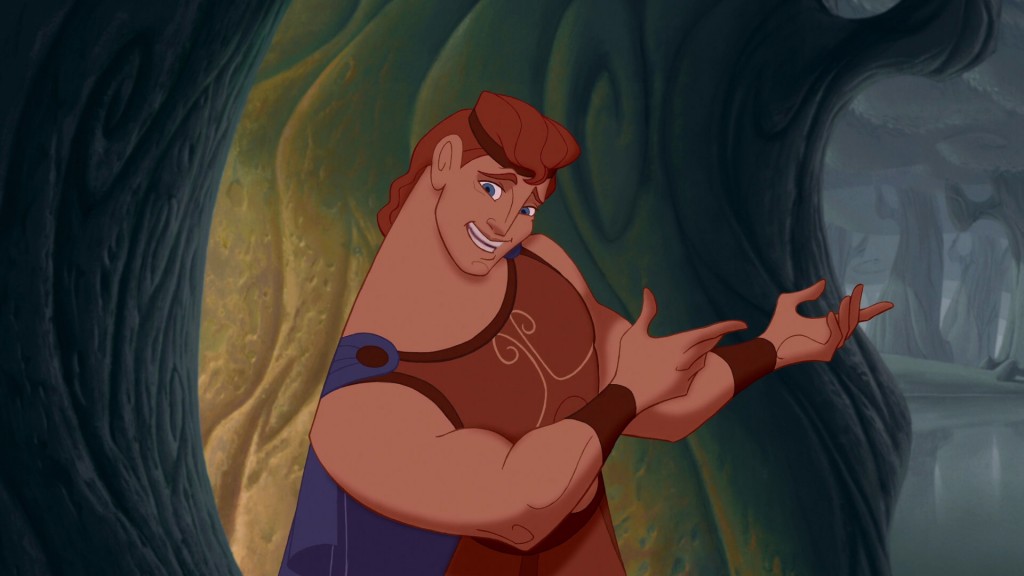
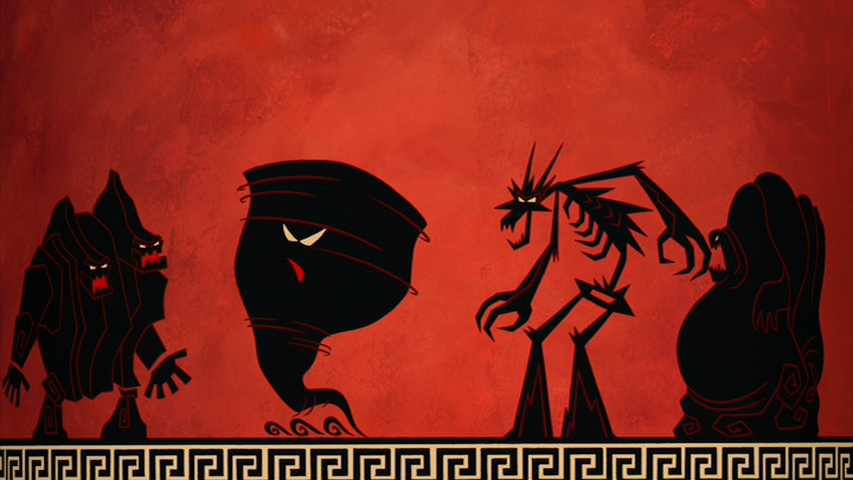
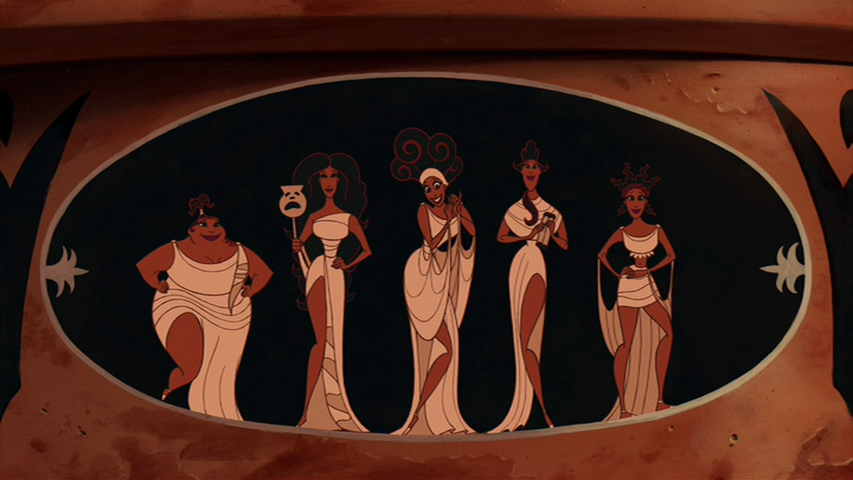
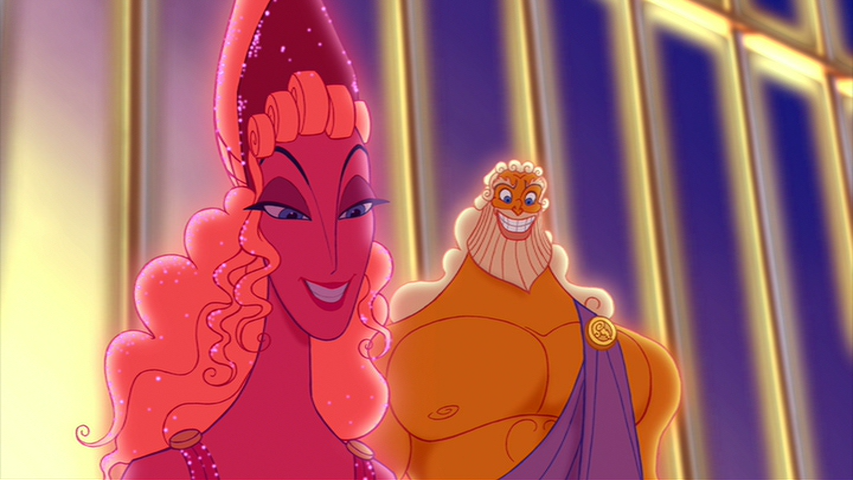
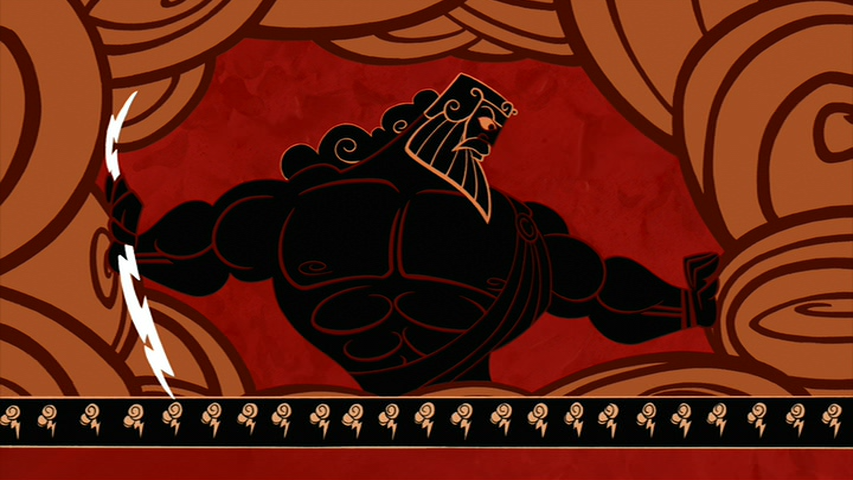
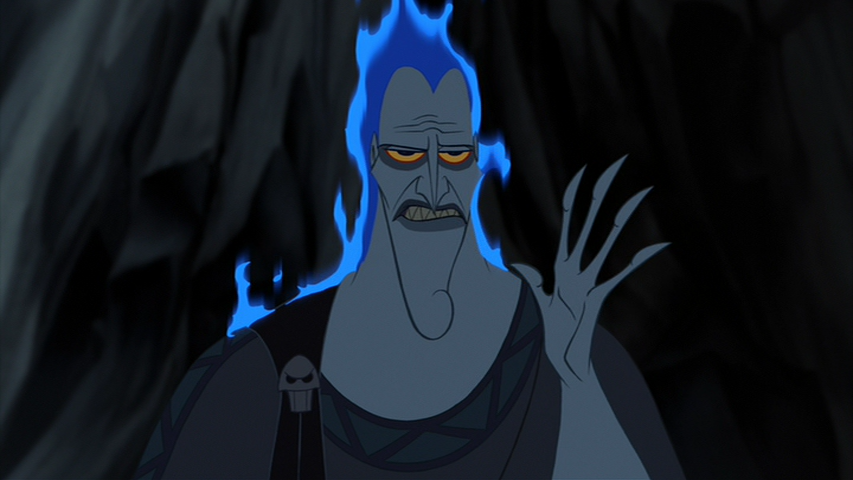
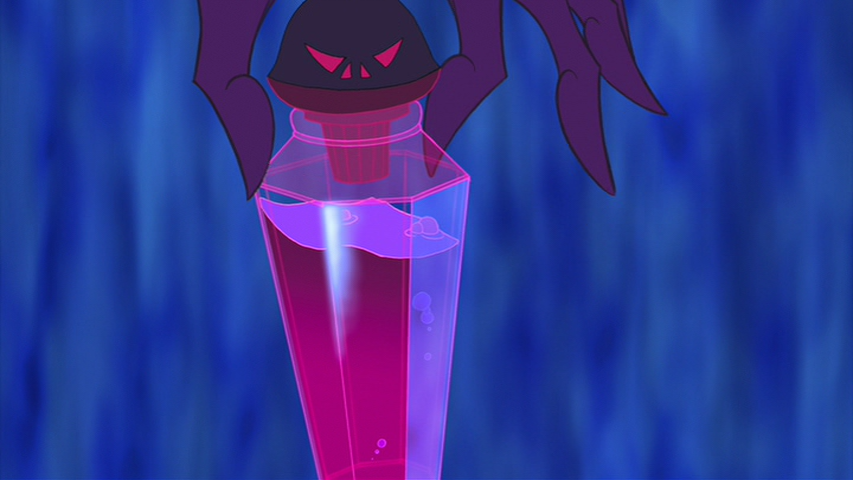
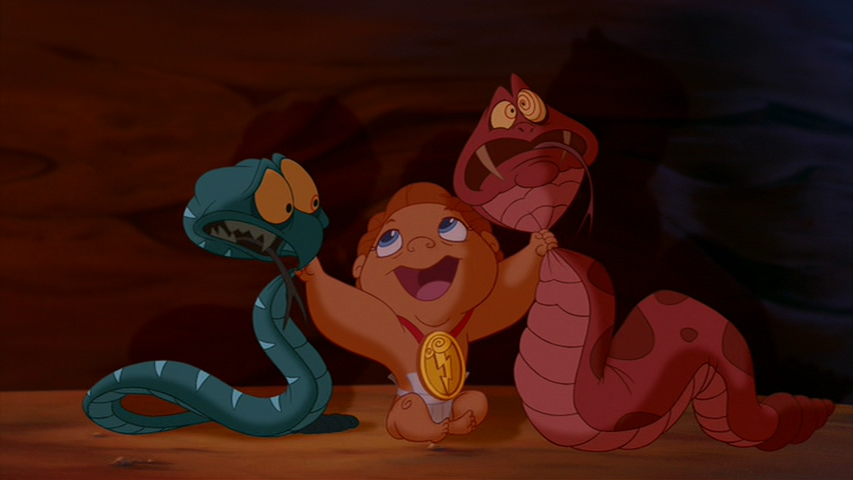
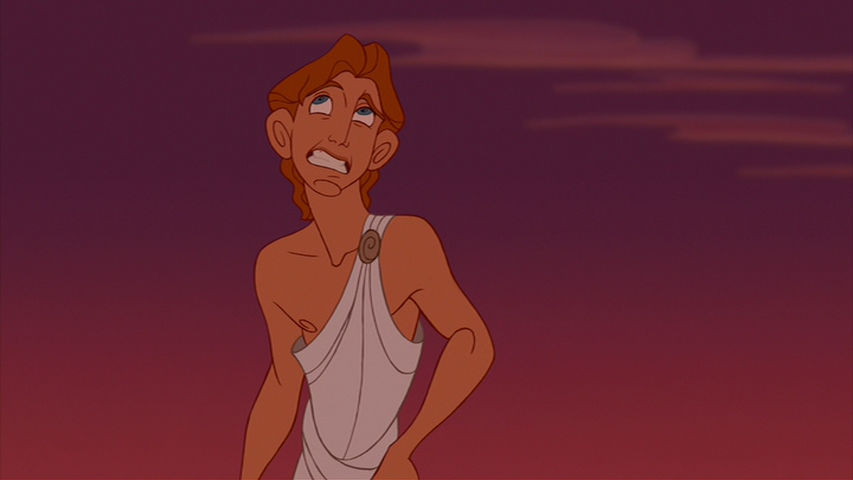
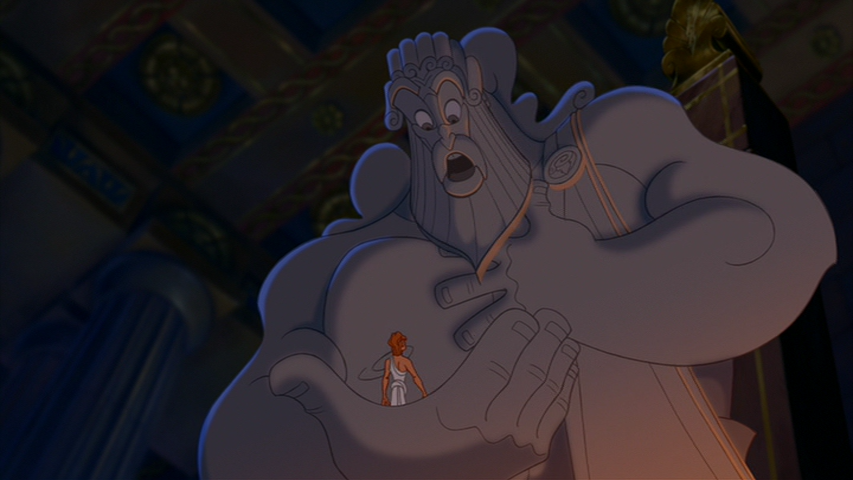
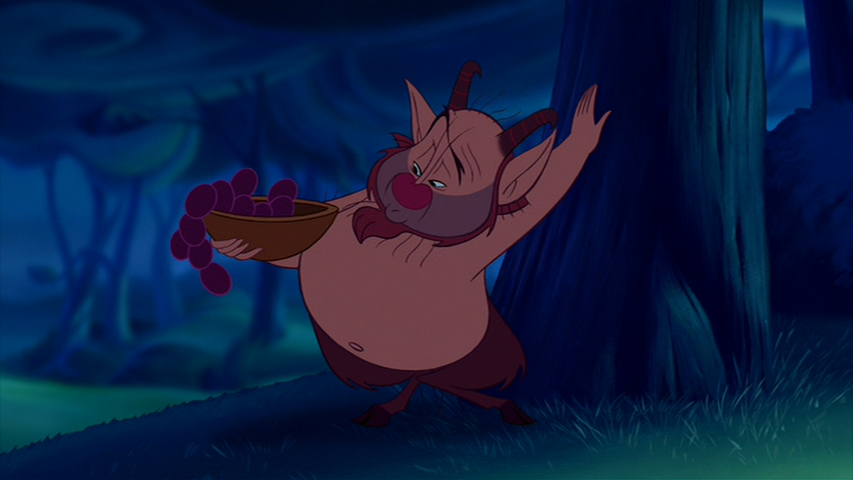
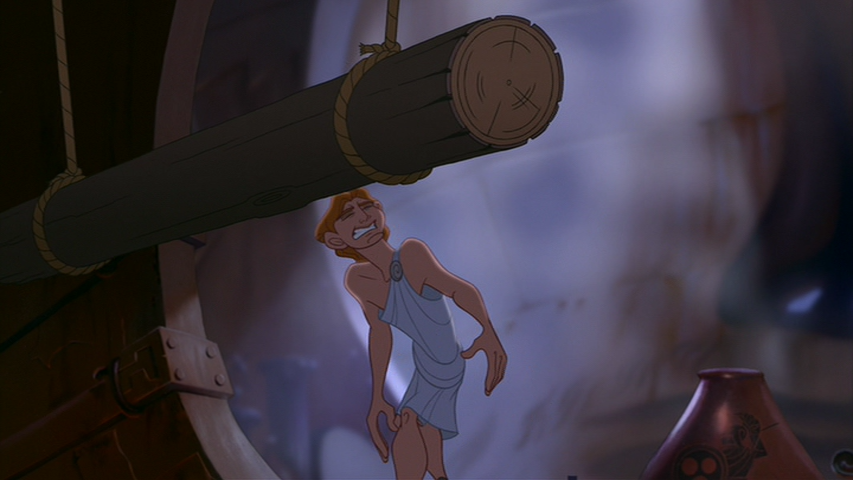
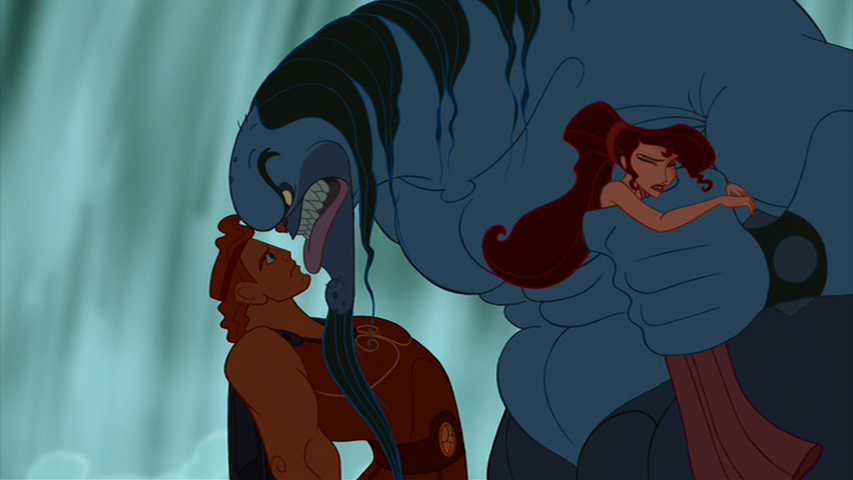
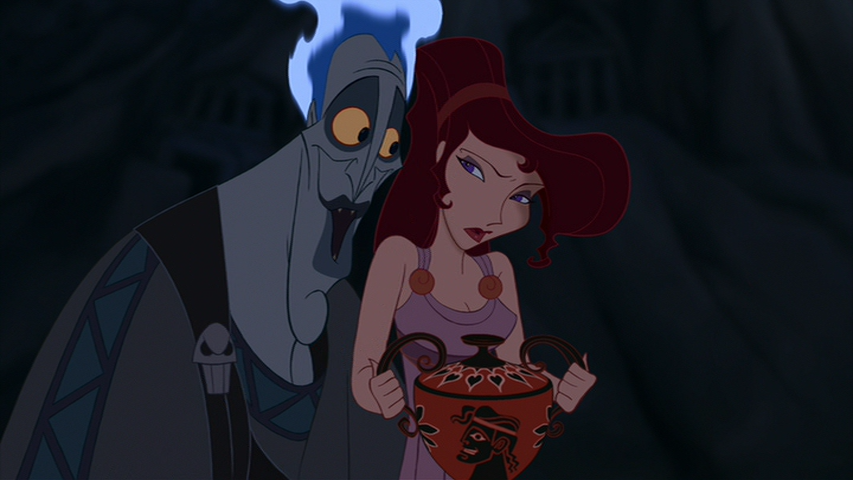
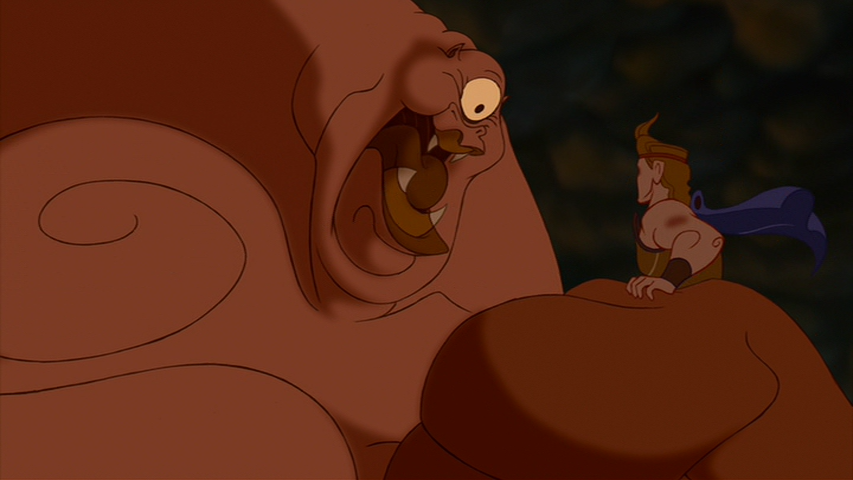
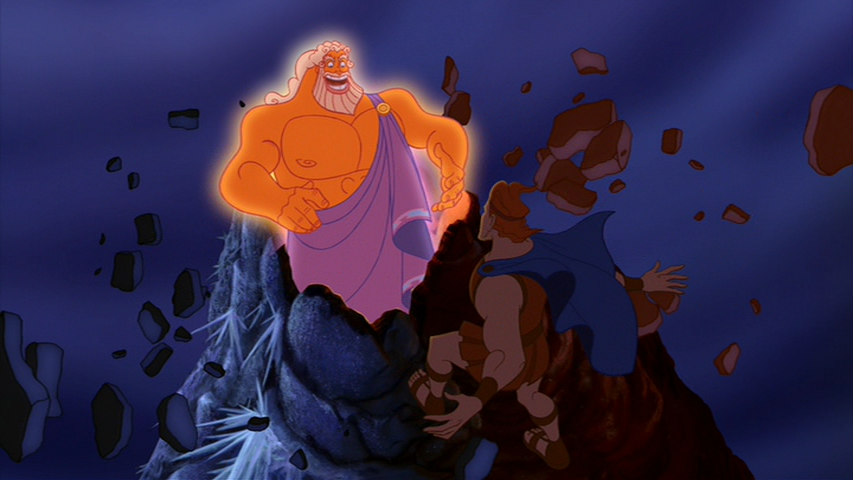
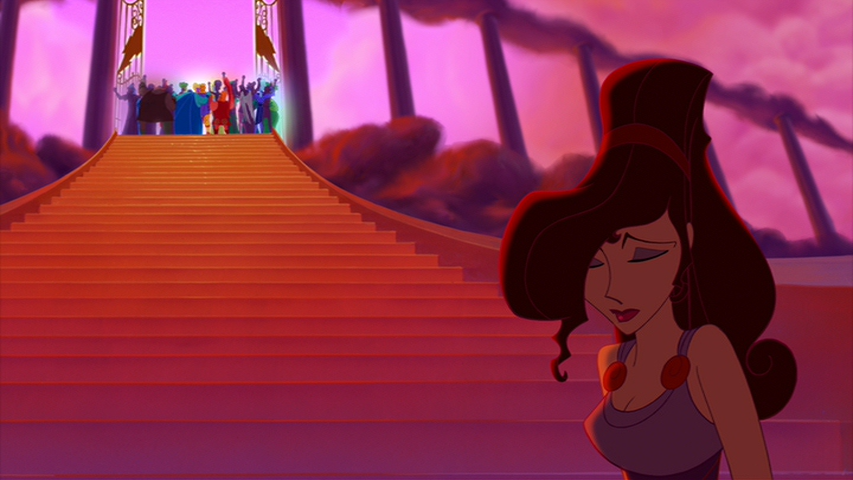
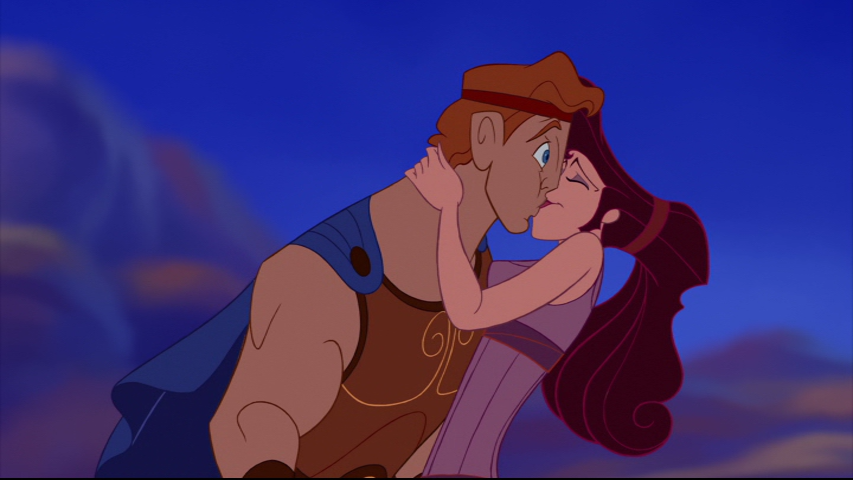

No comments:
Post a Comment